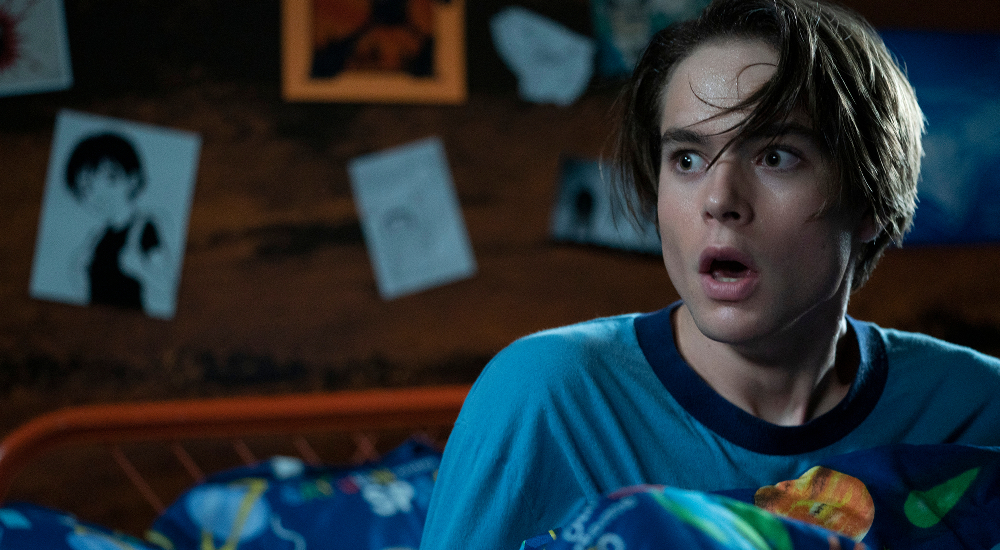"High school is worse than a near-death experience."
High school. It's a fun, explosive world of sex, alcohol, and freedom for some and a dark, gloomy, frustrating experience for most. Unfortunately for Cole (Judah Lewis), his life falls in the later, especially after the events of two years ago, when he thwarted off the advances of a satanic cult lead by his ridiculously hot and surprisingly relatable babysitter (Samara Weaving).
Directed by McG, the first film, released in 2017, was fun, campy, and a bit dramatic, the perfect recipe for a genre film with visions of becoming a cult favorite. In much the same vein, the sequel absorbs the original's personality, refusing to take itself seriously and opting for laughs and thrills over scares and chills.
The film, taking place over a single night some two years after the original, reconnects audiences with some familiar faces, including Emily Aly Lind's Melanie and her father's iconic car. With Cole being labeled "crazy" due to no physical proof of that horrid night, his parents are looking to send him off to a dedicated school that can help him cope with his delusions and psychotic episodes. To escape the detainment, he ventures to a beach party where he finds himself stranded on a boat where his past suddenly reappears, seeking vengeance.
Given the immense star power, we should note that most of the original cast returns. Joining Lewis and Aly Lind are supporting players Ken Marino, Robbie Amell, Andrew Bachelor, Hana Mae Lee, Bella Thorne, and newly added Jenna Ortega. Each brings a sense of nostalgia to the project, expanding on their offerings as they broaden the film's appeal, even if many of their returns prove more convenient than justified.
Regardless, The Babysitter: Killer Queen is a film that celebrates its ridiculousness while giving fans a sequel that, while not entirely necessary, feels part of a larger story. Encompassing many of the qualities that make 80s horror films the classics they rightfully are, the film presents an additional chapter, giving the universe some room to breathe and offering up a sense of redemption to the characters who hadn't yet gotten their fair share of explanation.
As the film chugs on for a predictable twenty minutes too long, it continues to embrace its campy attitude, overindulging on the theatrics as it offers a surprisingly strong supporting presence in Cole's father, played by Marino. At the same time, the film unapologetically dismisses the talents of his mother, the often overlooked Leslie Bibb. The two share very similar roles within the story's basic confines, so the stark difference in screen time is puzzling, especially with the existing mother-son bond.
Still, the film delivers. Though there are few surprises, even in the final minutes when McG attempts to pull a rabbit out of a hat, the storylines make sense within the film's broader context. It's a blessing, really, given the horrid sequels that have plagued the genre over the last several years. And one should note that while the build-up proves more entertaining than the confrontation, McG beautifully illustrates the bones of the genre, offering up a prime example of why it has survived numerous reincarnations over the years.
Killer Queen isn't perfect. Far from it actually. And many will be turned off by its temperament. But for those who understand cinema, the film marks an unexpected celebration that will likely go unacknowledged and underappreciated.
*This film is streaming globally on Netflix.

